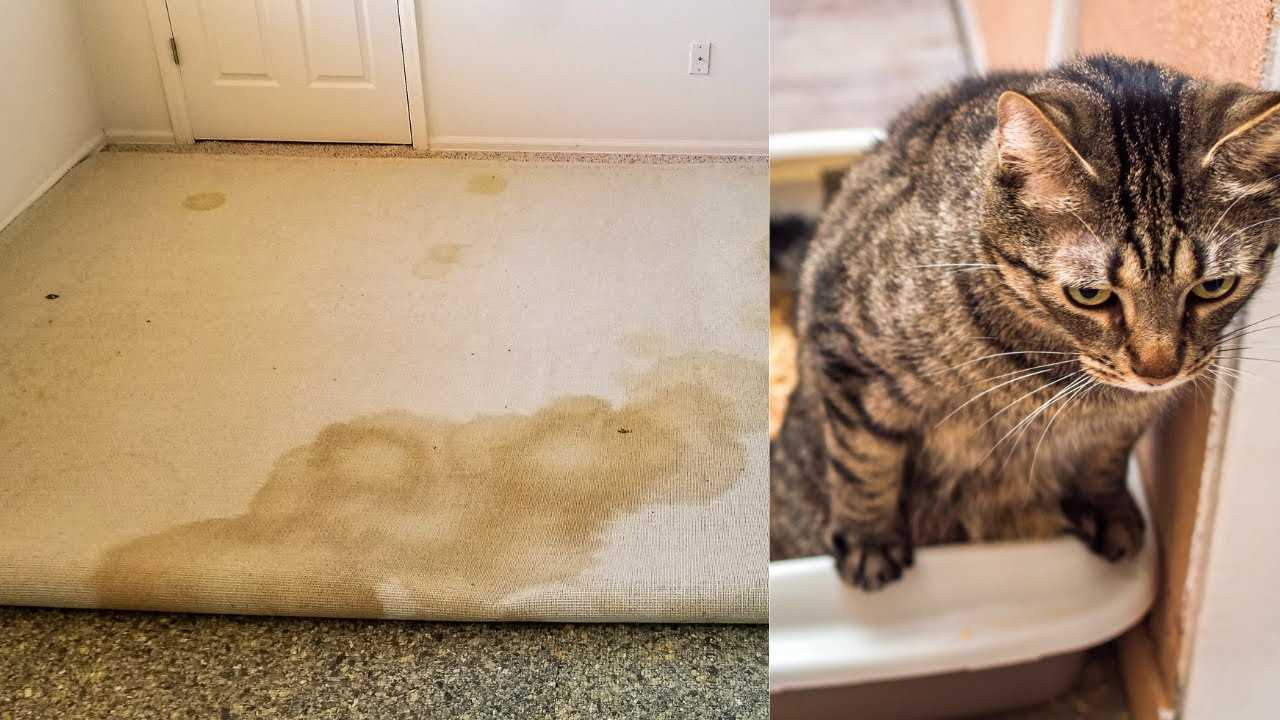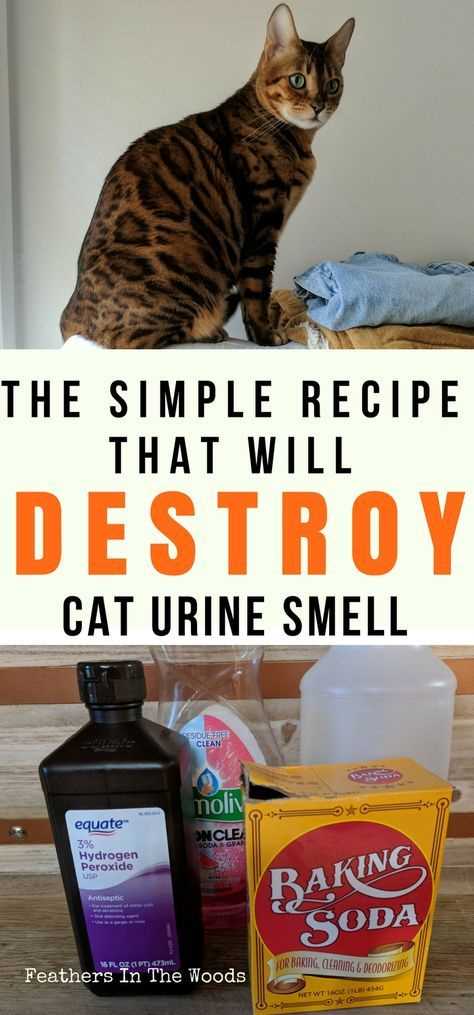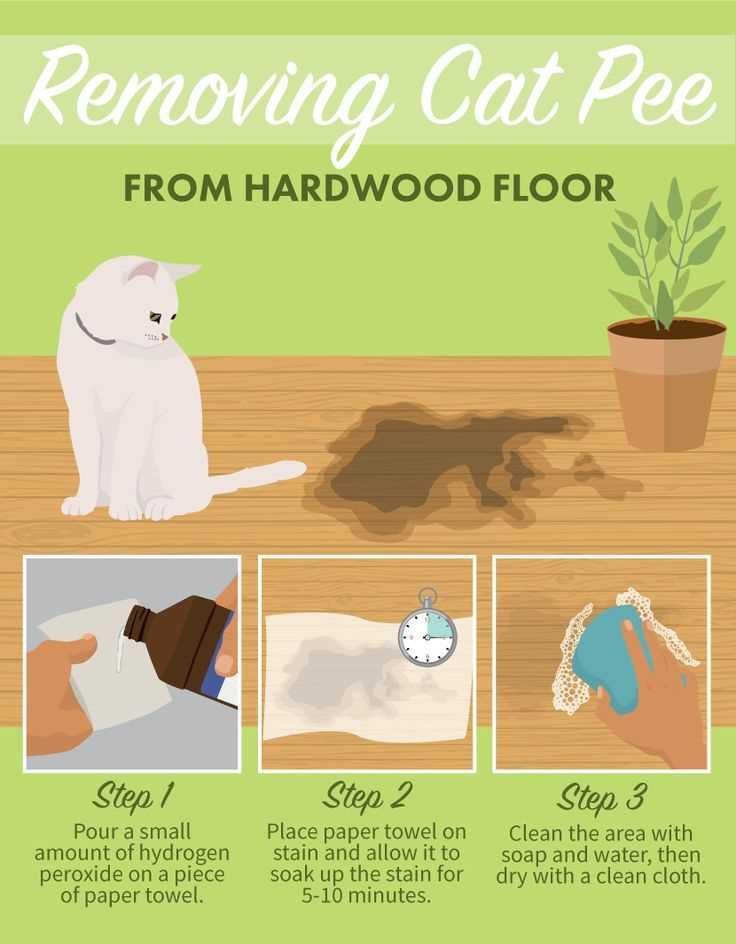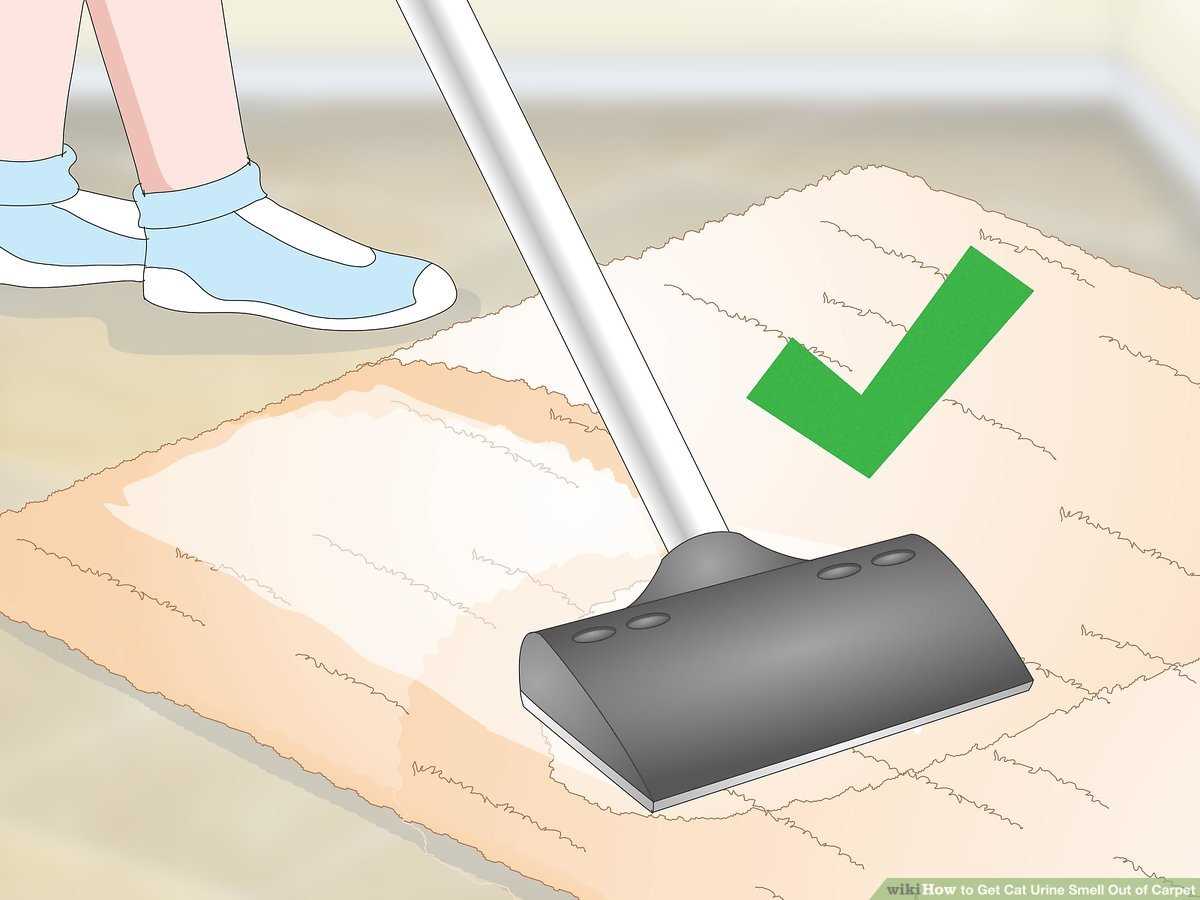



First things first: grab a clean cloth or paper towel. Blot the area immediately to absorb as much liquid as possible. Avoid rubbing, as it can push the substance deeper into the fibers.
Next, prepare a mixture of equal parts white vinegar and water in a spray bottle. Spray the affected region generously, ensuring thorough saturation. Let it sit for a few minutes to break down the odor-causing elements.
After the solution has had time to work, blot again with a clean cloth to absorb the mixture. A sprinkle of baking soda over the area can help neutralize lingering scents. Allow it to sit for several hours or overnight, then vacuum it up for a fresh finish.
For persistent odors, consider using an enzymatic cleaner specifically designed for this type of issue. These products contain natural enzymes that target and eliminate organic odors, ensuring a deeper clean.
Effective Removal of Urine Stains from Textiles

Start with blotting the affected area using paper towels to absorb as much moisture as possible. Press firmly but avoid rubbing to prevent spreading the stain further.
Mix one part white vinegar with one part water in a spray bottle. Apply this solution generously to the stained area. Vinegar neutralizes odors effectively.
After a few minutes, blot the area again with paper towels to absorb the vinegar solution. This will help lift the stain and odor.
Next, sprinkle baking soda over the area. This will not only assist in absorbing any remaining moisture but will also help eliminate residual smells. Leave it for a few hours or overnight if possible.
Finally, vacuum the area to remove the baking soda. If any traces remain, consider repeating the process or using a commercial enzymatic cleaner designed for pet stains.
For those dealing with other feline concerns, check out this treatment for hairballs in cats for additional advice.
Identifying the Type of Carpet for Cleaning
Determine the carpet material before tackling any stubborn stains. Common fibers include nylon, polyester, wool, and olefin. Each type reacts differently to various cleaning methods and solutions.
Nylon
Nylon is durable and resistant to stains, making it popular in homes. For this fiber, enzymatic cleaners work well, breaking down organic compounds effectively.
Wool
Wool requires special care due to its natural fibers. Use mild, pH-balanced cleaners to avoid damaging the texture. Blot stains gently and avoid scrubbing.
| Carpet Type | Recommended Cleaning Method |
|---|---|
| Nylon | Enzymatic cleaners |
| Polyester | Water-based solutions |
| Wool | Mild, pH-balanced cleaners |
| Olefin | Stain-resistant formulas |
Identifying the correct fiber helps select appropriate cleaning agents, ensuring effective removal of unwanted marks and odors.
Gathering Necessary Cleaning Supplies

Start with an enzymatic cleaner specifically formulated for tackling stains and odors caused by pets. These products break down the compounds in waste, eliminating the smell effectively.
A spray bottle is handy for applying the cleaner precisely where needed. Make sure it has a fine mist setting for even distribution.
Get paper towels or absorbent cloths to soak up moisture and blot the area. Avoid rubbing, as it can damage fibers.
A vacuum cleaner with a strong suction is vital for removing any dried residue and ensuring the area is clean before applying the cleaner.
Consider wearing gloves to keep your paws clean while handling the products. It’s also wise to ventilate the room, allowing fresh air to circulate.
Lastly, if you have heavy-duty stains or odors, a steam cleaner can provide deep cleaning. It’s an investment but can be beneficial for maintaining cleanliness in the long run.
For additional information on using multiple hoses with your pressure washer, visit this link: can i use two hoseson pressure washer.
Applying the Right Cleaning Technique for Fresh Stains

Act quickly. Blot the area using a clean, dry cloth or paper towel. Press down firmly to absorb as much liquid as possible without rubbing, which can spread the mess. Replace the cloth as it becomes wet.
Once the initial liquid is absorbed, mix a solution of equal parts white vinegar and water. Apply this mixture generously onto the affected spot, allowing it to sit for about 5-10 minutes. This helps neutralize odors and break down the remaining residue.
After soaking, blot again with a clean cloth to remove excess moisture. If any odor persists, sprinkle baking soda over the area once it dries. Let it sit for several hours or overnight, then vacuum thoroughly. This will help eliminate lingering smells.
For persistent stains, consider using an enzymatic cleaner designed to tackle organic materials. Follow the manufacturer’s instructions carefully for optimal results. These products work by breaking down the substances causing the stain and odor.
Dealing with Dried Stains and Odors
For tackling those stubborn, dried marks, it’s crucial to act with specific techniques. Begin with a solution of equal parts white vinegar and water. Spray this mixture generously on the affected area, allowing it to soak for about 10-15 minutes.
Next, blot the area with a clean cloth or paper towels. Avoid rubbing; gently press to lift the stain. This helps prevent further embedding into the fibers.
After blotting, sprinkle baking soda over the damp area. This will absorb any lingering scents. Let it sit for several hours or overnight, then vacuum thoroughly.
If the odor persists, enzymatic cleaners are effective. These products break down the compounds causing the smell. Apply according to the instructions on the label, ensuring it reaches deep into the fibers.
Check the area after the cleaning process. If any stains remain, repeat the vinegar solution and baking soda method. Persistence is key.
For added freshness, consider using a carpet-safe air freshener or a mixture of water and a few drops of essential oil in a spray bottle. Lightly mist the area, ensuring it’s not overly saturated.
Regularly check the spot to ensure the odor doesn’t return, as some materials can trap fragrances, requiring extra attention.
Preventing Future Accidents on the Carpet

Keep a consistent litter box routine. Regular cleaning of the box encourages proper usage. Ensure the box is easily accessible and located in a quiet space.
Choose the right type of litter. Experiment with various textures and scents to find what suits my preferences best. A comfortable environment leads to better habits.
Monitor my health. Regular vet check-ups can identify any potential issues that might lead to accidents. If I’m not feeling well, I might avoid the box.
Introduce positive reinforcement. Reward me with treats or praise when I use the litter box correctly. This builds a connection between good behavior and rewards.
Limit access to areas where accidents have previously occurred. Use baby gates or closed doors to keep me from wandering into forbidden zones.
Ensure proper playtime and stimulation. Boredom can lead to mischief. Engage me with toys and activities to keep me entertained and content.
Address any stressors in the environment. Changes at home, new pets, or loud noises can impact my behavior. Create a calm atmosphere to help reduce anxiety.







